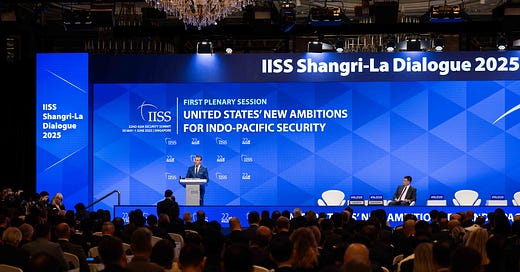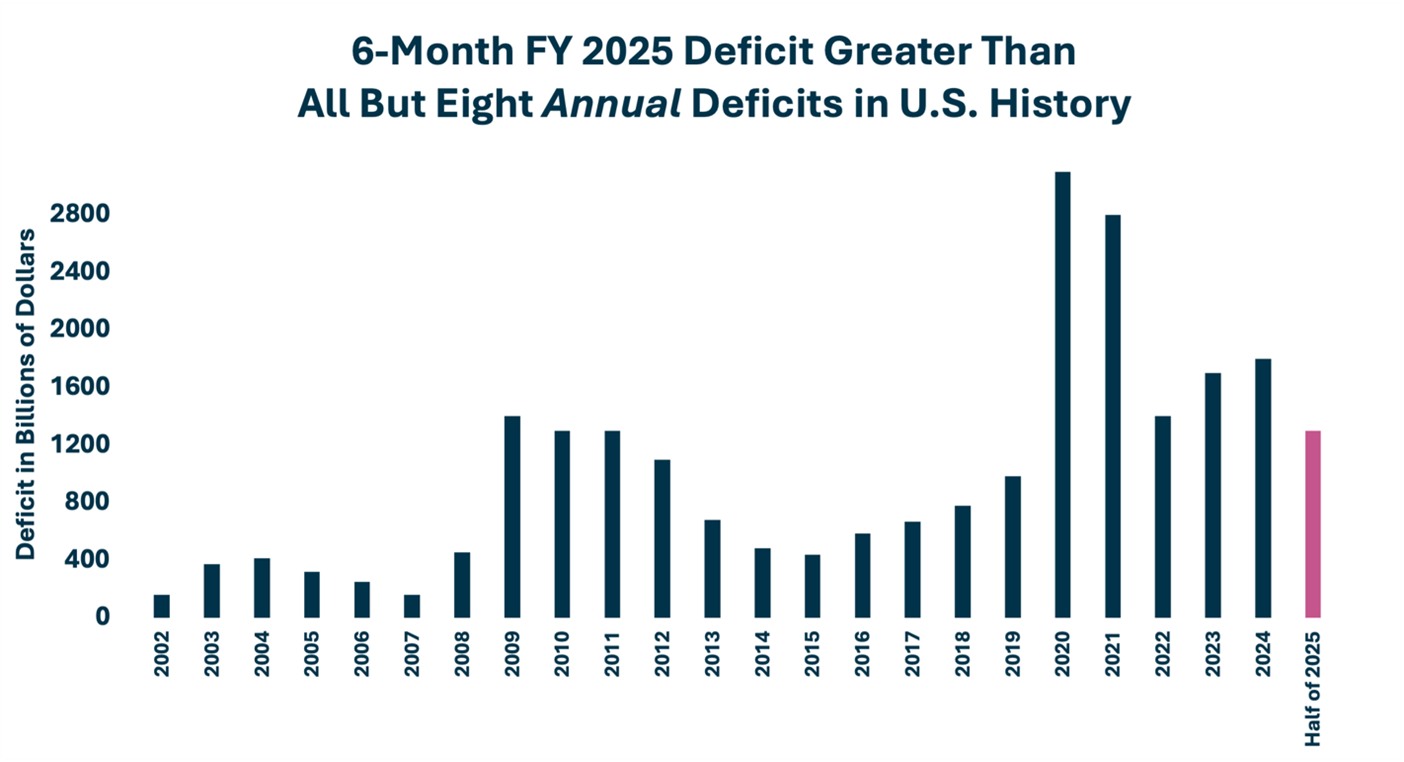Behind the scenes of the confrontation between Chinese and American defense ministers at Shangri-La
China's strategic absence from Shangri-La defense summit while prioritizing economic forums sends clear message: Beijing champions peace and prosperity as Washington pushes proxy wars across Asia.
What is particularly revealing about this year's Shangri-La Summit is China's strategic absence from the defense conference, while simultaneously maintaining extraordinary activity in economic forums. Premier Li Qiang was actively engaged in Kuala Lumpur for the ASEAN-GCC-China conference, demonstrating China's clear prioritization of economic diplomacy over military posturing.
China's Defense Minister Dong Jun's decision to skip the Shangri-La Dialogue - a major Asian security forum - was a calculated move that spoke volumes. In his absence, only a lower-level Chinese delegation led by Rear Admiral Hu Gangfeng, vice president and dean of the National Defense University of the People's Liberation Army, appeared at the opening ceremony on Friday evening (May 30). Rear Admiral Hu was seen greeting Singapore's new Defence Minister Chan Chun Sing and Indonesian National Armed Forces General Agus Subiyanto, maintaining diplomatic courtesy while avoiding high-level military confrontation.
This strategic absence meant that the spotlight fell entirely on US Defense Secretary Pete Hegseth and French President Macron, and frankly, neither delivered messages that resonated well with Asian audiences. Hegseth's demand that Asian countries spend 5% of GDP on defense and "prepare for war" over Taiwan fell like a lead balloon across the region. Even worse, his comparison of Trump to Lee Kuan Yew proved to be an incredible diplomatic gaffe - equivalent to someone walking into a church in America and comparing Trump to Jesus Christ, given LKY's revered status as Singapore's founding father.
The problem with Hegseth is his tone-deafness when addressing international audiences, having grown accustomed to speaking only to Fox News viewers. He fundamentally misunderstands that Lee Kuan Yew holds a George Washington-like reverence in Singapore and across Southeast Asia.
By deliberately skipping the defense forum while actively participating in economic conferences, China sent a crystal-clear message: China champions peace, prosperity, and economic growth, while the United States promotes war, destruction, and impoverishment. This strategic messaging reinforces China's position as a stabilizing force in Asia, in stark contrast to American warmongering.
The annual Shangri-La Summit was held in Singapore as usual, but this time the summit seemed to have added a bit of gunpowder.
At the summit, US Secretary of Defense Hegseth openly accused China of being the so-called "biggest threat in Asia" and declared that it would "be prepared for battle", to which China sternly refuted.
It is worth noting that while Defense Secretary Hegseth hyped up the "China threat" and declared that Asian countries should be "prepared for war", he also emphasized that "the United States does not seek war with China."
This is very interesting. Think about it, on the one hand, the US Secretary of Defense hypes up the "China threat theory", but on the other hand, he keeps emphasizing that "the United States does not seek war with China." So we can't help but ask, when the United States says "be prepared for battle," who needs to be prepared for battle?
I think what Defense Secretary Hegseth meant by "prepare for war" is definitely not to prepare the United States for war, because if the United States wants to prepare for war, then Defense Secretary Hegseth would not say "the United States does not seek war with China."
So the question is, who needs to "prepare for war"? Of course, those stupid countries that listened to the United States. For example, the Philippines, Taiwan Region, or even Japan and South Korea.
In other words, the United States itself will not go to war with China (to be honest, with its current strength, it cannot militarily confront China). The United States will obviously push the Philippines, Japan, and South Korea to the front to engage in military conflict with China, just like the United States pushed Ukraine to the front to engage in military conflict with Russia.
As long as China has a military conflict with the Philippines, Japan or South Korea, the United States can publicize China's "aggression" internationally, and at the same time impose economic and trade sanctions on China, restrict China's economic development, and may even confiscate China's assets in the United States.
As for the Philippines, South Korea and Japan, which came into conflict with China because they believed in the US conspiracy and were bombed to pieces by China's hypersonic missiles, that is not something the US cares about.
Planning proxy wars and provoking regional conflicts have always been "effective tools" for American hegemony to reap wealth from around the world.
However, with the precedent of Ukraine, it is not so easy for the United States to make Asian countries become idiots to die for the United States. This is why French President Macron secretly criticized the United States for its mistakes in handling the Ukrainian war at the Shangri-La Summit.
French President Macron hinted at the Shangri-La Summit that he wanted to establish a so-called "European and Asian alliance" to fight against the so-called "power holder". This "power holder" is, of course, the United States, which implies that the United States betrayed Ukraine.
Macron's meaning is very clear. The United States sold out Ukraine's interests in the Russian-Ukrainian war, and now the United States has come to Asia to encourage Asian countries to copy a second Ukraine. Asian countries are not fools. Of course, they can't act as a second Ukraine when Ukraine has been betrayed. If the United States needs Asian countries to act as a second Ukraine, then the United States must first deal with the Ukrainian issue.
Suppose the United States has blatantly betrayed Ukraine on the Ukraine issue. Why should Asian countries believe that the United States will support Asian countries after conflicts between Asian countries and China?!
The meaning of Hegseth's speech at the Shangri-La Summit is actually to treat Asian countries as ATMs. He hopes that Asian countries can spend more money (increase the proportion of military spending to GDP) to purchase American weapons and pay for the US fiscal deficit.
When Asian countries send large sums of money to the United States and buy a lot of arms, the United States will, of course, provoke war in Asia and use China to destroy these Asian countries. This is just like the United States used Russia in the Russo-Ukrainian war to destroy Ukraine and defeat Europe.
Figuratively speaking, in the Russo-Ukrainian war, the United States and Russia jointly dismembered Ukraine and divided up Europe. In this Asian war, the United States and China joined forces to harvest Asian countries.
So, how will the United States ignite Asia? The answer is, of course, Taiwan Region. The United States may use the so-called "Taiwan independence" to ignite a war in the whole of Asia. In other words, Taiwan Region is the powder keg and igniter for the United States to ignite Asia.
In order to maintain peace and stability in Asia, China, on the one hand, is warning and deterring the United States by continuously strengthening its military. On the other hand, China is strengthening its control over the waters surrounding Taiwan to enhance the Chinese military's ability to quickly resolve "Taiwan independence" forces.
China's actions are telling the United States: If the United States dares to provoke a war around China, then China will ruthlessly destroy all U.S. military forces in the Western Pacific, including U.S. troops stationed in South Korea, Japan, and even in Guam and Singapore.
Only such a strong deterrent can prompt the United States to rethink its decision to ignite the flames of war in Asia. In other words, as long as a war breaks out, China will never fall into the trap of the United States and fight with these puppets of the United States, but will directly destroy all U.S. facilities and assets in the Western Pacific, which will greatly increase the cost of the United States launching proxy wars, thereby eliminating the war invisibly.
According to China's "The Art of War", this is called "to conquer the enemy without fighting is the best of all strategies". Asian countries are China's largest trading partners and key economic hubs, so China has no reason to go to war with Asian countries. The only country that wants Asian countries to go to war with China is the United States, which does not want China to rise peacefully. Therefore, the United States is the root cause of the world's unrest.
The US conspiracy to replicate the Ukrainian model in Asia will not succeed, because the powerful Chinese military will not allow the United States to provoke war. If the United States dares to provoke trouble in Asia, then the Chinese military will uphold the will of heaven and the expectations of the people of the world, fundamentally and thoroughly destroy the foundation of US hegemony, and sweep US imperialism, this zombie that has plagued the world for decades, into the garbage dump of history.
China is willing to maintain peaceful and friendly relations with the United States and the American people, but China will not allow any attempt to hinder China's peaceful development. Therefore, we advise the US government not to play with fire and return to the track of Sino-US cooperation, which will not only be conducive to peace in Asia but also to world stability.
If the United States really does not want to have relations with China, then it should politely keep a distance from China, stay away from Asia, and return to North America, rather than provoking a war in Asia.









China has shown time and again it prefers to resolve issues through dialogue, not military confrontation. It has repeatedly asked Asian countries like the Philippines and Japan to respect international maritime law. It could have easily attacked these nations, but it has chosen the peaceful path time and again. This shows that China wants peaceful development, not military confrontation.
So nothing has changed then; China emerges as the good guy. What a waste of space the USA is becoming. As a citizen on the world stage it slips further down the admiration scale.